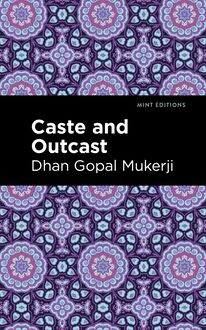-
 Univers
Univers
-
 Ebooks
Ebooks
-
 Livres audio
Livres audio
-
 Presse
Presse
-
 Podcasts
Podcasts
-
 BD
BD
-
 Documents
Documents
-
- Cours
- Révisions
- Ressources pédagogiques
- Sciences de l’éducation
- Manuels scolaires
- Langues
- Travaux de classe
- Annales de BEP
- Etudes supérieures
- Maternelle et primaire
- Fiches de lecture
- Orientation scolaire
- Méthodologie
- Corrigés de devoir
- Annales d’examens et concours
- Annales du bac
- Annales du brevet
- Rapports de stage
La lecture à portée de main
Vous pourrez modifier la taille du texte de cet ouvrage
Découvre YouScribe en t'inscrivant gratuitement
Je m'inscrisDécouvre YouScribe en t'inscrivant gratuitement
Je m'inscrisEn savoir plus
Vous pourrez modifier la taille du texte de cet ouvrage
En savoir plus

Description
Mashi and Other Stories (1918) is a collection of short stories by Rabindranath Tagore. Published after Tagore received the 1913 Nobel Prize in Literature, Mashi and Other Stories contains some of the author’s most beloved works of short fiction, including “Mashi,” “The Skeleton,” “The Postmaster,” and “The River Stairs.” “Mashi remained silent, suppressing a sigh. Not once, but often she had seen Jotin spending the night on the verandah wet with the splashing rain, yet not caring to go into his bedroom. Many a day he lay with a throbbing head, longing, she knew, that Mani would come and soothe his brow, while Mani was getting ready to go to the theatre. Yet when Mashi went to fan him, he sent her away petulantly.” On his deathbed, Jotin experiences heartache like no other as his young wife Mani neglects him for her own friends and family. Cared for by his aunt Mashi, the young man spends his final days in sorrow, longing for his love to return to him one last time. “Mashi,” the title story of the collection, is one of fourteen stories of romance, faith, and tragedy by Bengali polymath and Nobel laureate Rabindranath Tagore. With a beautifully designed cover and professionally typeset manuscript, this edition of Rabindranath Tagore’s Mashi and Other Stories is a classic of Indian literature reimagined for modern readers.
Sujets
Informations
| Publié par | Mint Editions |
| Date de parution | 12 octobre 2021 |
| Nombre de lectures | 0 |
| EAN13 | 9781513213804 |
| Langue | English |
| Poids de l'ouvrage | 1 Mo |
Informations légales : prix de location à la page 0,0350€. Cette information est donnée uniquement à titre indicatif conformément à la législation en vigueur.
Extrait
Mashi and Other Stories
Rabindranath Tagore
Mashi and Other Stories was first published in 1918.
This edition published by Mint Editions 2021.
ISBN 9781513215808 | E-ISBN 9781513213804
Published by Mint Editions®
minteditionbooks.com
Publishing Director: Jennifer Newens
Design & Production: Rachel Lopez Metzger
Project Manager: Micaela Clark
Typesetting: Westchester Publishing Services
C ONTENTS M ASHI T HE S KELETON T HE A USPICIOUS V ISION T HE S UPREME N IGHT R AJA AND R ANI T HE T RUST P ROPERTY T HE R IDDLE SOLVED T HE E LDER S ISTER S UBHA T HE P OSTMASTER T HE R IVER S TAIRS T HE C ASTAWAY S AVED M Y F AIR N EIGHBOUR
M ASHI
I
“M ASHI !” 1
“Try to sleep, Jotin, it is getting late.”
“Never mind if it is. I have not many days left. I was thinking that Mani should go to her father’s house.—I forget where he is now.”
“Sitarampur.”
“Oh yes! Sitarampur. Send her there. She should not remain any longer near a sick man. She herself is not strong.”
“Just listen to him! How can she bear to leave you in this state?”
“Does she know what the doctors—?”
“But she can see for herself! The other day she cried her eyes out at the merest hint of having to go to her father’s house.”
We must explain that in this statement there was a slight distortion of truth, to say the least of it. The actual talk with Mani was as follows:—
“I suppose, my child, you have got some news from your father? I thought I saw your cousin Anath here.”
“Yes! Next Friday will be my little sister’s annaprashan 2 ceremony. So I’m thinking—”
“All right, my dear. Send her a gold necklace. It will please your mother.”
“I’m thinking of going myself. I’ve never seen my little sister, and I want to ever so much.”
“Whatever do you mean? You surely don’t think of leaving Jotin alone? Haven’t you heard what the doctor says about him?”
“But he said that just now there’s no special cause for—”
“Even if he did, you can see his state.”
“This is the first girl after three brothers, and she’s a great favourite.—I have heard that it’s going to be a grand affair. If I don’t go, mother will be very—”
“Yes, yes! I don’t understand your mother. But I know very well that your father will be angry enough if you leave Jotin just now.”
“You’ll have to write a line to him saying that there is no special cause for anxiety, and that even if I go, there will be no—”
“You’re right there; it will certainly be no great loss if you do go. But remember, if I write to your father, I’ll tell him plainly what is in my mind.”
“Then you needn’t write. I shall ask my husband, and he will surely—”
“Look here, child, I’ve borne a good deal from you, but if you do that, I won’t stand it for a moment. Your father knows you too well for you to deceive him.”
When Mashi had left her, Mani lay down on her bed in a bad temper.
Her neighbour and friend came and asked what was the matter.
“Look here! What a shame it is! Here’s my only sister’s annaprashan coming, and they don’t want to let me go to it!”
“Why! Surely you’re never thinking of going, are you, with your husband so ill?”
“I don’t do anything for him, and I couldn’t if I tried. It’s so deadly dull in this house, that I tell you frankly I can’t bear it.”
“You are a strange woman!”
“But I can’t pretend, as you people do, and look glum lest anyone should think ill of me.”
“Well, tell me your plan.”
“I must go. Nobody can prevent me.”
“Isss! What an imperious young woman you are!”
II
H EARING THAT M ANI HAD WEPT at the mere thought of going to her father’s house, Jotin was so excited that he sat up in bed. Pulling his pillow towards him, he leaned back, and said: “Mashi, open this window a little, and take that lamp away.”
T HE STILL NIGHT STOOD SILENTLY at the window like a pilgrim of eternity; and the stars gazed in, witnesses through untold ages of countless death-scenes.
Jotin saw his Mani’s face traced on the background of the dark night, and saw those two big dark eyes brimming over with tears, as it were for all eternity.
Mashi felt relieved when she saw him so quiet, thinking he was asleep.
Suddenly he started up, and said: “Mashi, you all thought that Mani was too frivolous ever to be happy in our house. But you see now—”
“Yes, I see now, my Baba, 3 I was mistaken—but trial tests a person.”
“Mashi!”
“Do try to sleep, dear!”
“Let me think a little, let me talk. Don’t be vexed, Mashi!”
“Very well.”
“Once, when I used to think I could not win Mani’s heart, I bore it silently. But you—”
“No, dear, I won’t allow you to say that; I also bore it.”
“Our minds, you know, are not clods of earth which you can possess by merely picking up. I felt that Mani did not know her own mind, and that one day at some great shock—”
“Yes, Jotin, you are right.”
“Therefore I never took much notice of her waywardness.”
Mashi remained silent, suppressing a sigh. Not once, but often she had seen Jotin spending the night on the verandah wet with the splashing rain, yet not caring to go into his bedroom. Many a day he lay with a throbbing head, longing, she knew, that Mani would come and soothe his brow, while Mani was getting ready to go to the theatre. Yet when Mashi went to fan him, he sent her away petulantly. She alone knew what pain lay hidden in that distress. Again and again she had wanted to say to Jotin: “Don’t pay so much attention to that silly child, my dear; let her learn to want,—to cry for things.” But these things cannot be said, and are apt to be misunderstood. Jotin had in his heart a shrine set up to the goddess Woman, and there Mani had her throne. It was hard for him to imagine that his own fate was to be denied his share of the wine of love poured out by that divinity. Therefore the worship went on, the sacrifice was offered, and the hope of a boon never ceased.
M ASHI IMAGINED ONCE MORE THAT Jotin was sleeping, when he cried out suddenly:
“I know you thought that I was not happy with Mani, and therefore you were angry with her. But, Mashi, happiness is like those stars. They don’t cover all the darkness; there are gaps between. We make mistakes in life and we misunderstand, and yet there remain gaps through which truth shines. I do not know whence comes this gladness that fills my heart tonight.”
Mashi began gently to soothe Jotin’s brow, her tears unseen in the dark.
“I was thinking, Mashi, she’s so young! What will she do when I am—?”
“Young, Jotin? She’s old enough. I too was young when I lost the idol of my life, only to find him in my heart forever. Was that any loss, do you think? Besides, is happiness absolutely necessary?”
“Mashi, it seems as if just when Mani’s heart shows signs of awakening I have to—”
“Don’t you worry about that, Jotin. Isn’t it enough if her heart awakes?”
Suddenly Jotin recollected the words of a village minstrel’s song which he had heard long before:
O my heart! you woke not when the man of my heart came to my door.
At the sound of his departing steps you woke up.
Oh, you woke up in the dark!
“Mashi, what is the time now?”
“About nine.”
“So early as that! Why, I thought it must be at least two or three o’clock. My midnight, you know, begins at sundown. But why did you want me to sleep, then?”
“Why, you know how late last night you kept awake talking; so today you must get to sleep early.”
“Is Mani asleep?”
“Oh no, she’s busy making some soup for you.”
“You don’t mean to say so, Mashi? Does she—?”
“Certainly! Why, she prepares all your food, the busy little woman.”
“I thought perhaps Mani could not—”
“It doesn’t take long for a woman to learn such things. With the need it comes of itself.”
“The fish soup, that I had in the morning, had such a delicate flavour, I thought you had made it.”
“Dear me, no! Surely you don’t think Mani would let me do anything for you? Why, she does all your washing herself. She knows you can’t bear anything dirty about you. If only you could see your sitting-room, how spick and span she keeps it! If I were to let her haunt your sick-room, she would wear herself out. But that’s what she really wants to do.”
“Is Mani’s health, then—?”
“The doctors think she should not be allowed to visit the sick-room too often. She’s too tender-hearted.”
“But, Mashi, how do you prevent her from coming?”
“Because she obeys me implicitly. But still I have constantly to be giving her news of you.”
T HE STARS GLISTENED IN THE sky like tear-drops. Jotin bowed his head in gratitude to his life that was about to depart, and when Death stretched out his right hand towards him through the darkness, he took it in perfect trust.
J OTIN SIGHED , AND , WITH A slight gesture of impatience, said:
“Mashi, if Mani is still awake, then, could I—if only for a—?”
“Very well! I’ll go and call her.”
“I won’t keep her long, only for five minutes. I have something particular to tell her.”
Mashi, sighing, went out to call Mani. Meanwhile Jotin’s pulse began to beat fast. He knew too well that he had never been able to have an intimate talk with Mani. The two instruments were tuned differently and it was not easy to play them in unison. Again and again, Jotin had felt pangs of jealousy on hearing Mani chattering and laughing merrily with her girl companions. Jotin blamed only himself,—why couldn’t he talk irrelevant trifles as they did? Not that he could not, for with his men friends he often chatted on all sorts of trivialities. But the small talk that suits men is not suitable for women. You can hold a philosophical discourse in monologue, ignoring your inattentive audience altogether, but small talk requires the co-operation of at least two. The bagpipes can be played singly, but there must be a pair of cymbals. How often in the evenings had Jotin, when sitting on the open verandah with Mani, made some strained attempts at conversation, only to feel the thread snap. And the very silence of the evening felt ashamed. Jotin was certain that Mani longed to get away. He had even wished earnestly that a third pe
-
 Univers
Univers
-
 Ebooks
Ebooks
-
 Livres audio
Livres audio
-
 Presse
Presse
-
 Podcasts
Podcasts
-
 BD
BD
-
 Documents
Documents
-
Jeunesse
-
Littérature
-
Ressources professionnelles
-
Santé et bien-être
-
Savoirs
-
Education
-
Loisirs et hobbies
-
Art, musique et cinéma
-
Actualité et débat de société
-
Jeunesse
-
Littérature
-
Ressources professionnelles
-
Santé et bien-être
-
Savoirs
-
Education
-
Loisirs et hobbies
-
Art, musique et cinéma
-
Actualité et débat de société
-
Actualités
-
Lifestyle
-
Presse jeunesse
-
Presse professionnelle
-
Pratique
-
Presse sportive
-
Presse internationale
-
Culture & Médias
-
Action et Aventures
-
Science-fiction et Fantasy
-
Société
-
Jeunesse
-
Littérature
-
Ressources professionnelles
-
Santé et bien-être
-
Savoirs
-
Education
-
Loisirs et hobbies
-
Art, musique et cinéma
-
Actualité et débat de société
- Cours
- Révisions
- Ressources pédagogiques
- Sciences de l’éducation
- Manuels scolaires
- Langues
- Travaux de classe
- Annales de BEP
- Etudes supérieures
- Maternelle et primaire
- Fiches de lecture
- Orientation scolaire
- Méthodologie
- Corrigés de devoir
- Annales d’examens et concours
- Annales du bac
- Annales du brevet
- Rapports de stage

















